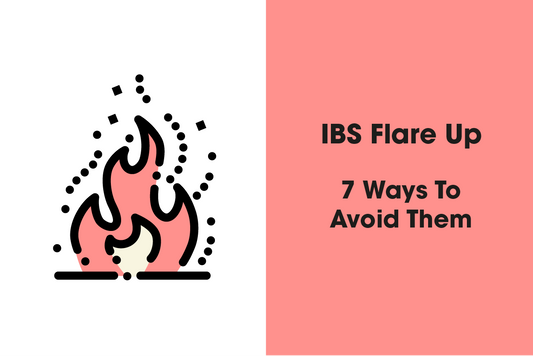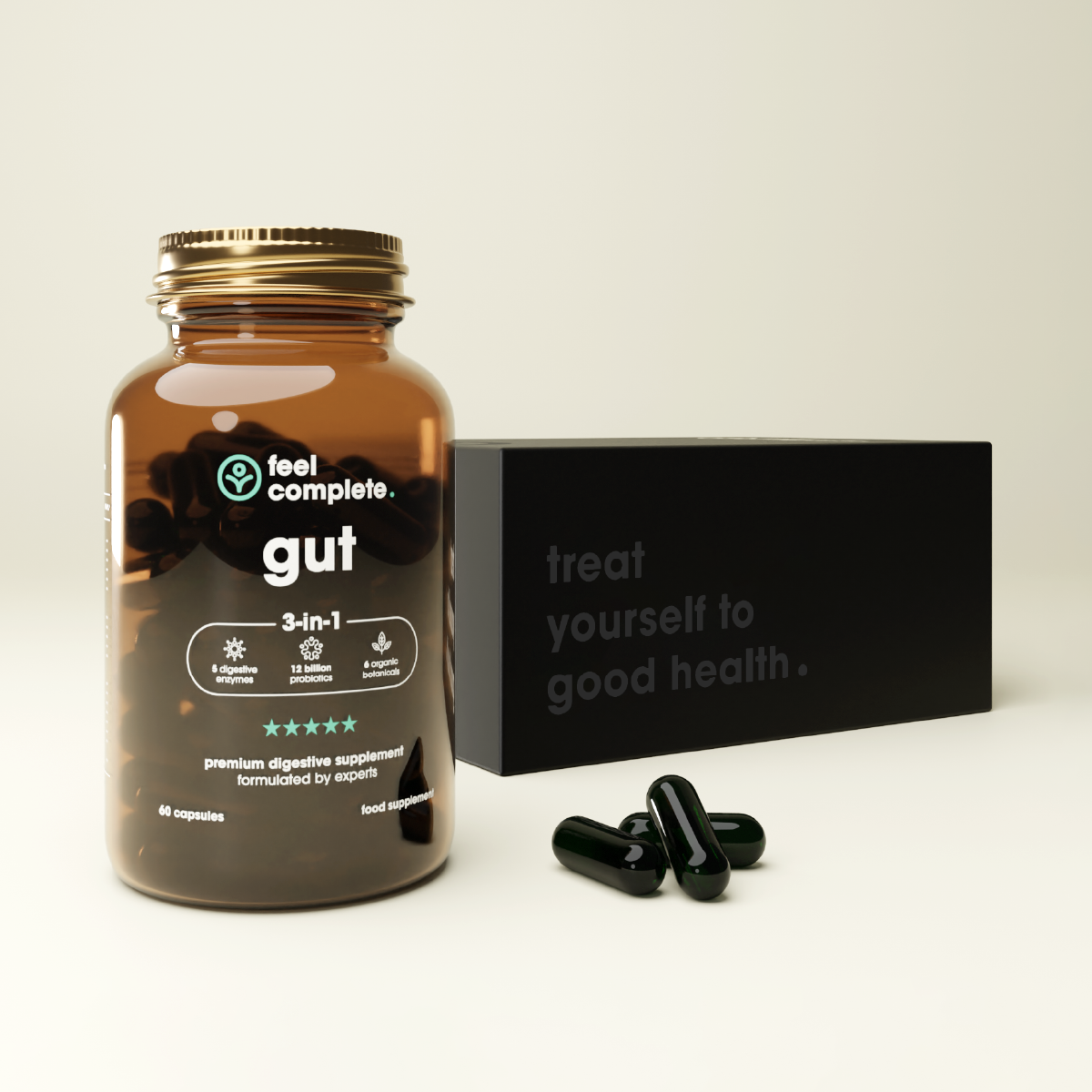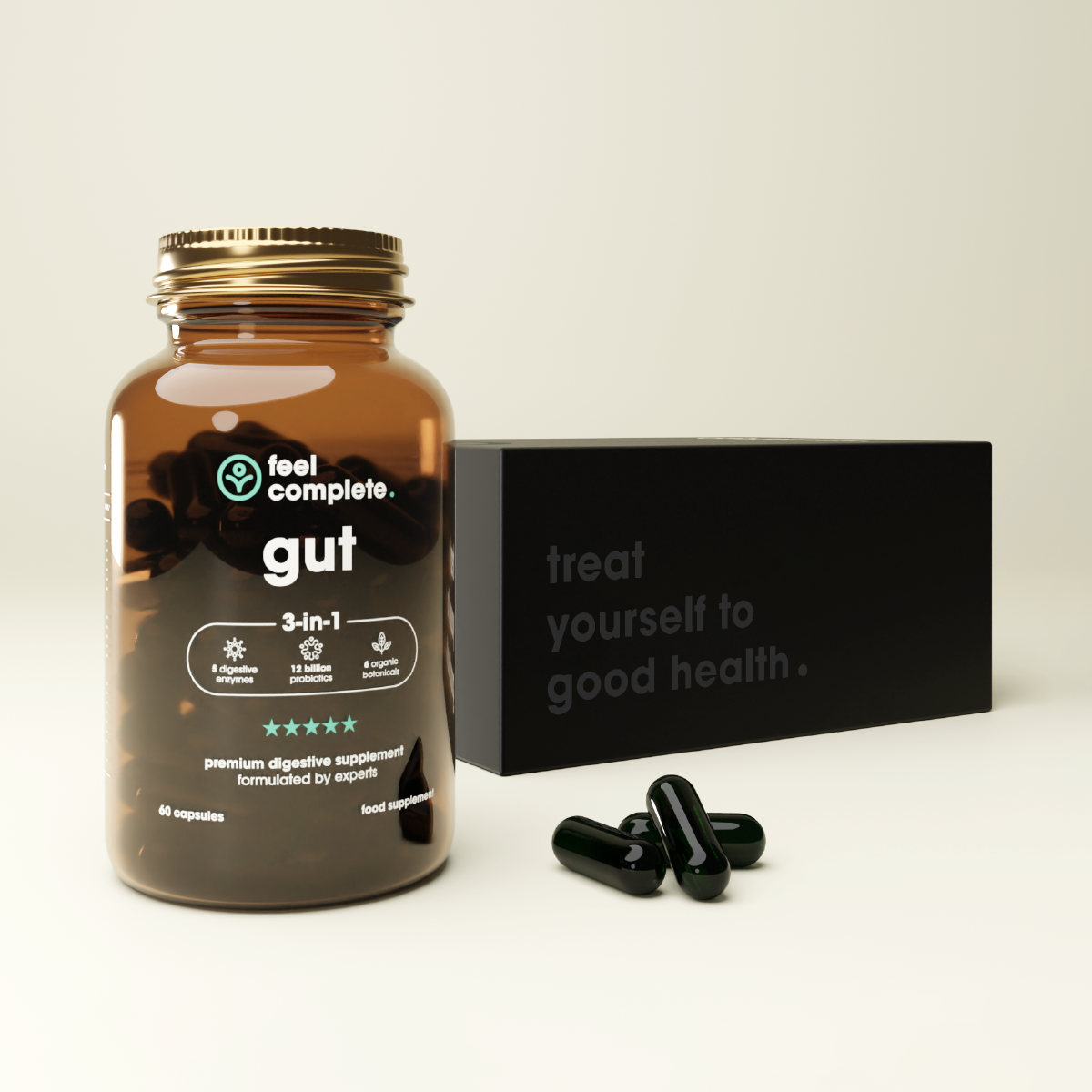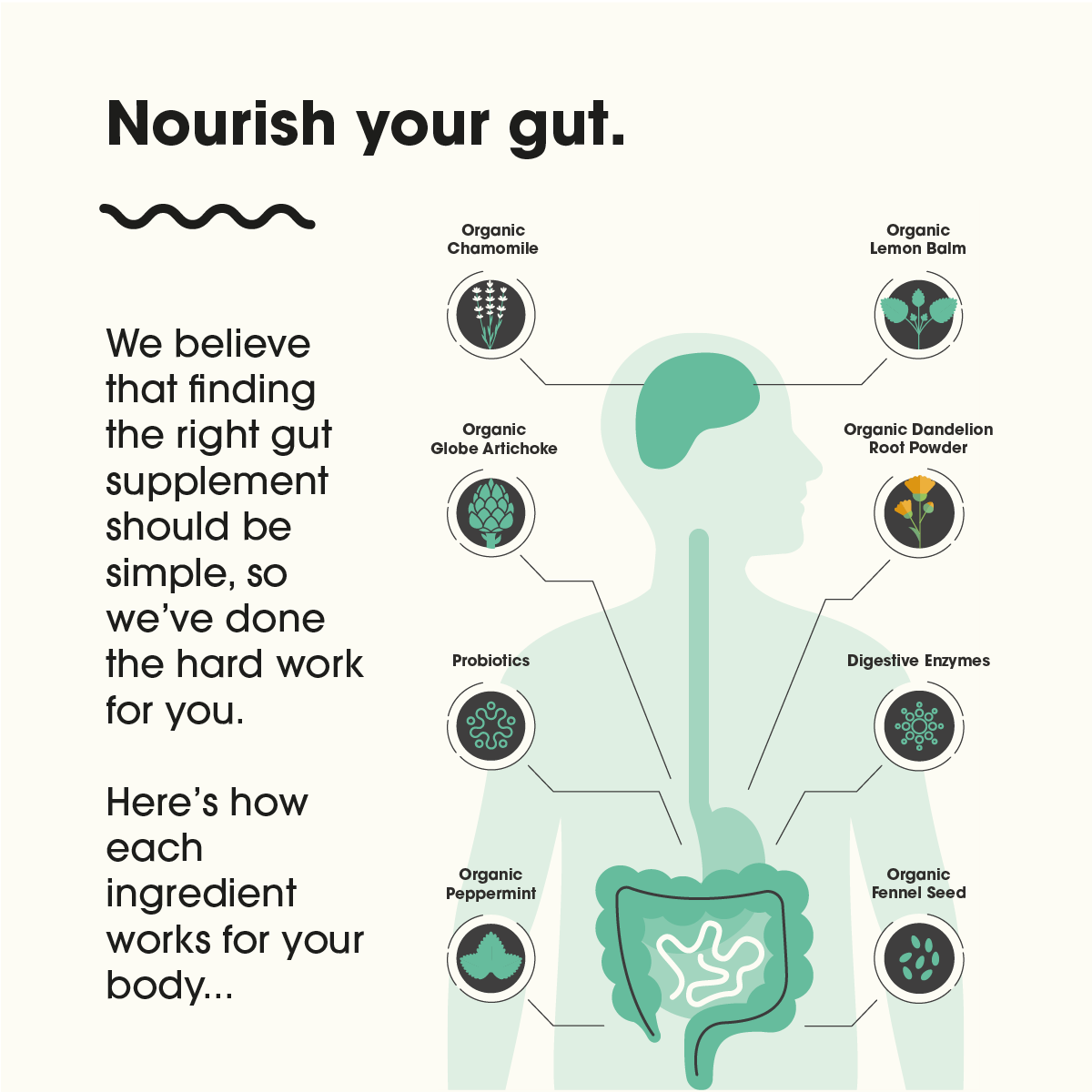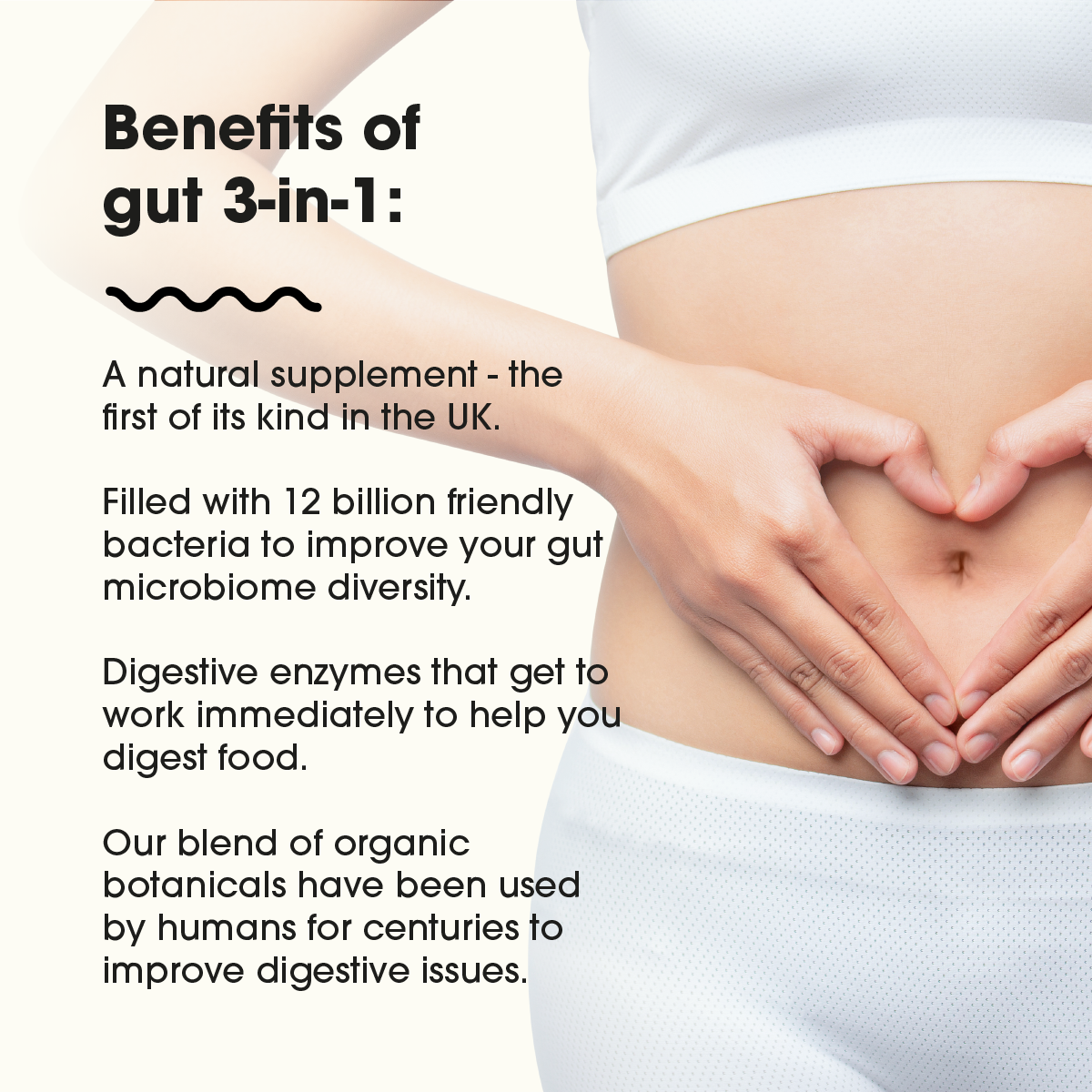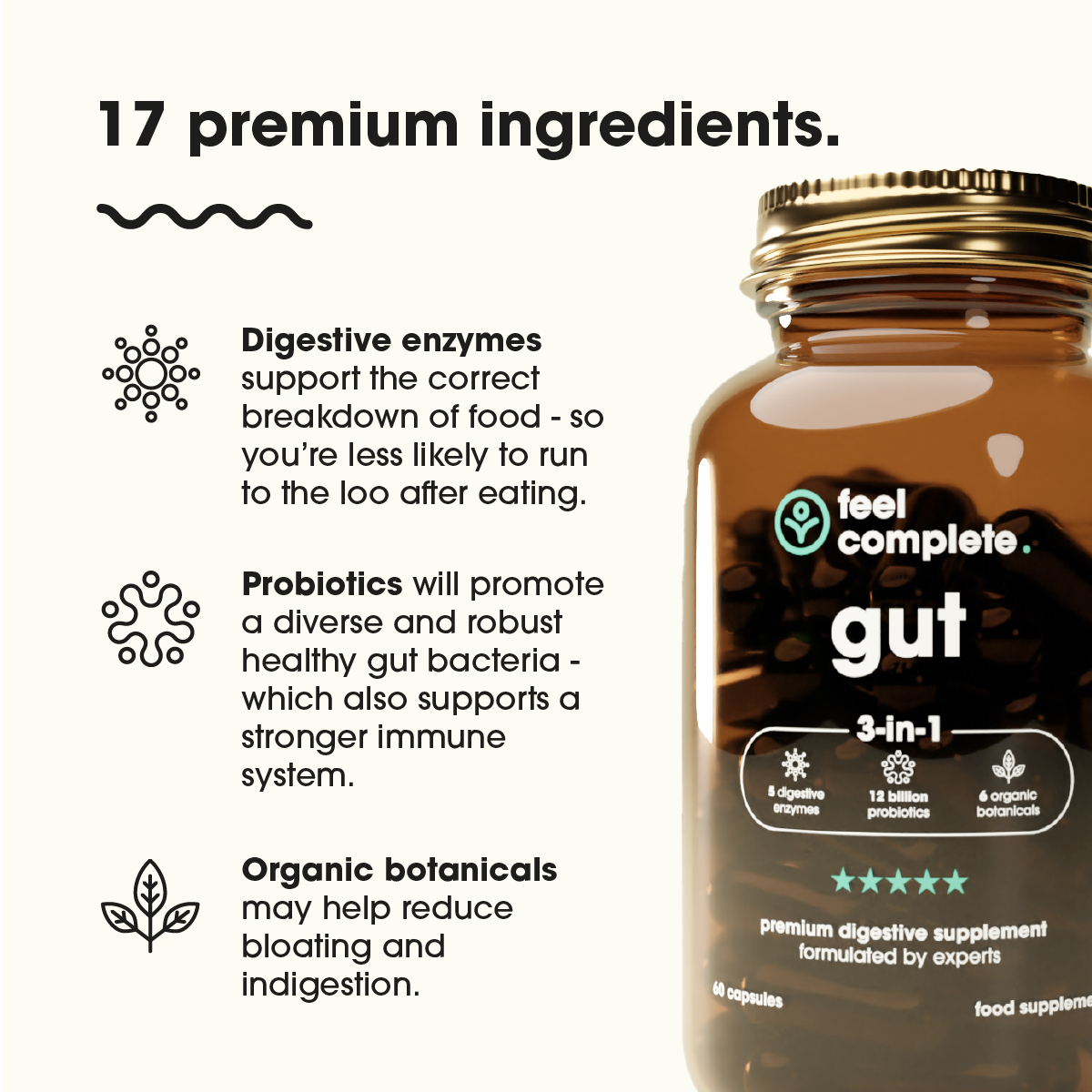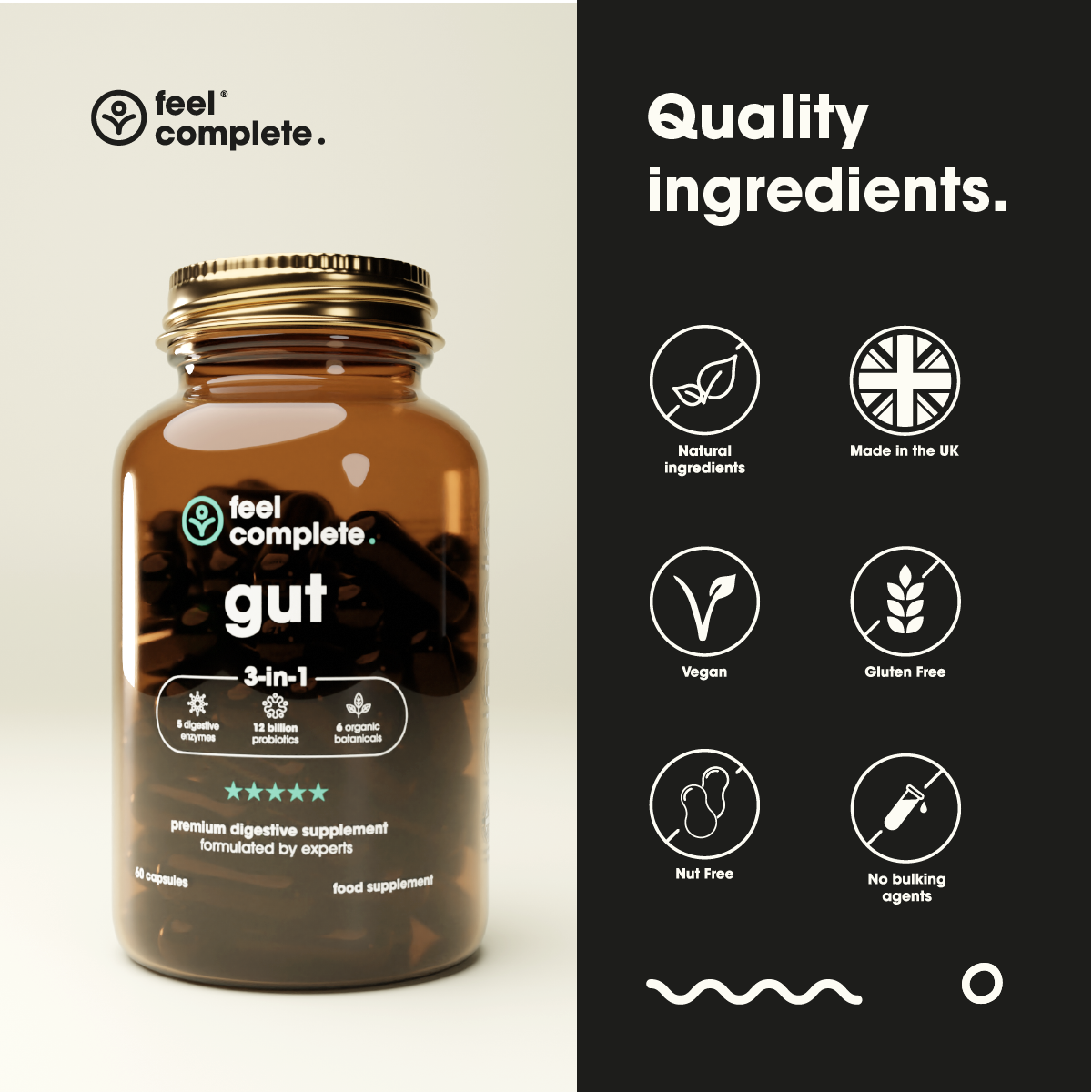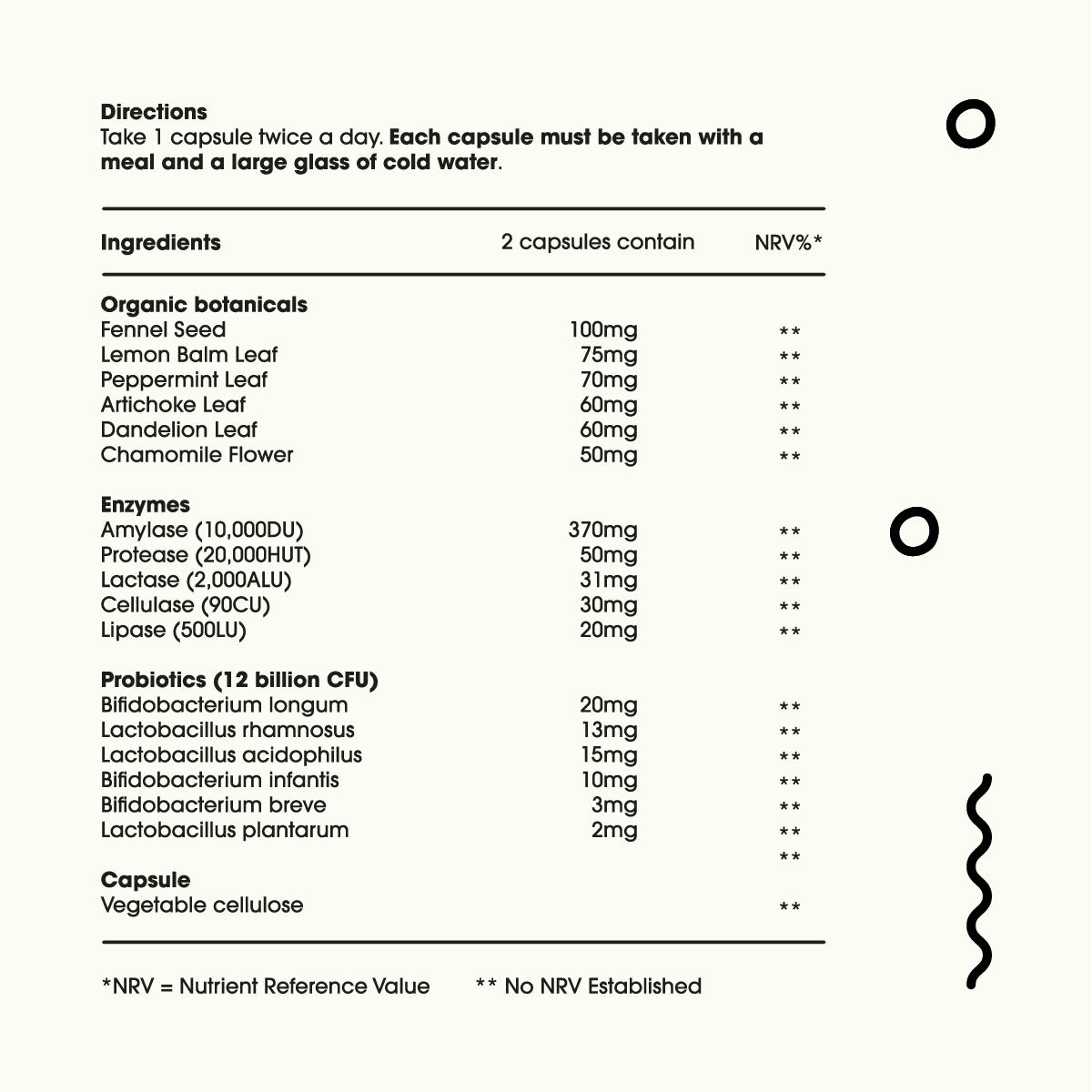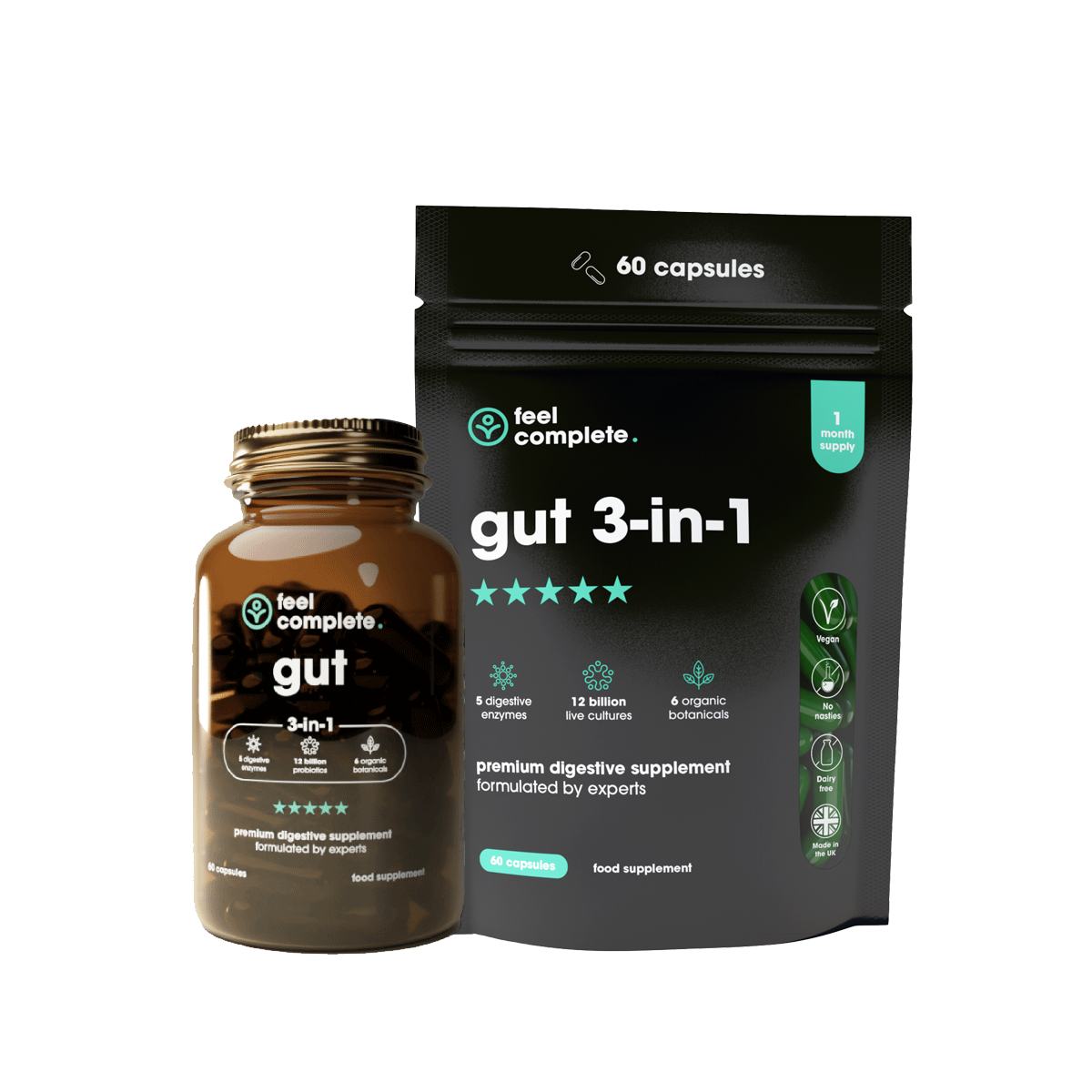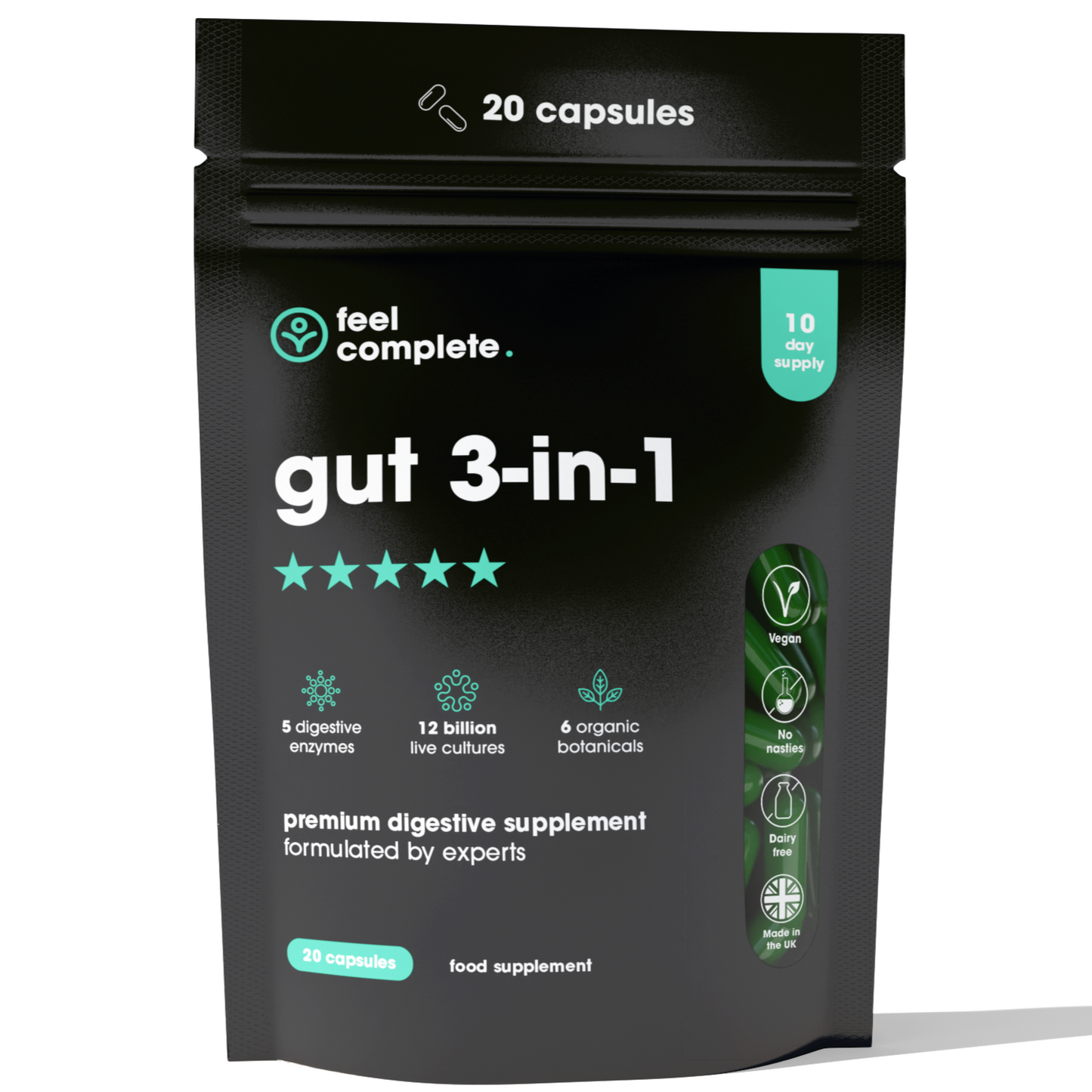You've probably heard countless times: “You are what you eat,” but have you ever heard: “You feel what you eat?” We're guessing the answer is no! But seriously, does what we eat affect our feelings, particularly, our mental health?
We won't keep you hanging. The short answer is a resounding yes – what we eat has a massive impact on our mental health (just as it does our physical health). To learn about this close relationship and the happy foods that can boost your mood, read on. We promise that your tummy and brain will both thank you for it!
Eat for your brain
Are you familiar with expressions like “I have butterflies in my stomach,” or “I have a gut feeling this or that will happen?” Well, these are not empty expressions but a clear sign that your gut and brain are interconnected. In other words, they communicate and what happens in one place affects the other.
In simple terms, if you're eating foods that mess with your brain chemicals and trigger negative emotions, then you'll feel down, depressed and moody. But if you eat good mood foods, then you'll be happier, more relaxed and be in a better place.
In fact, researchers refer to our gut microbiome as the “second brain” because we feel with our gut just as we feel with our brain.
So next time your tummy's rumbling, do yourself a favour and think about your poor brain! Your brain is hungry too and it needs nourishing. Sadly, it's often the last thing we consider when it comes to the food choices we make. But now that you know there's a connection, you can support your brain better.
So what should you eat to improve your mood? Let's find out!
The Mediterranean diet/style of eating
The benefits of the Mediterranean style of eating are nothing short of remarkable. From preventing cognitive decline and reducing the risk of heart disease, cancer, diabetes, and obesity, this diet – which is actually a lifestyle – can do wonders for your brain and mood, too.
Research shows that this style of eating can reduce the risk of depression as well as Alzheimer's disease.
Having said that, you don't have to live in Greece, Spain or Italy to benefit from the Mediterranean style of eating. Adding these whole foods is a great start:
Fruits: Oranges, bananas, figs, peaches, melons, apples, pears, grapes, dates etc.
Veggies: Tomatoes, spinach, carrots, sweet potatoes, cucumbers, onions, broccoli, turnips, etc.
Legumes: Lentils, chickpeas, beans, peas
Nuts and seeds: Walnuts, almonds, cashews, macadamia nuts, pumpkin seeds, etc.
Whole grains: Brown rice, barley, oats, whole wheat bread and pasta, buckwheat, rye, and corn
Herbs: Basil, garlic, rosemary, cinnamon, sage, mint, nutmeg, pepper
Healthy fats: Olives, extra virgin olive oil, avocados, and avocado oil
Eggs: Chicken, duck and quail
Dairy: Milk, cheese
Poultry: Chicken, duck, turkey
Seafood: Salmon, tuna, sardines, shrimp, trout, mackerel, mussels, etc.
That's a pretty long list of yummy foods, right? But want to know the best part? At Feel Complete, our holistic approach to health focuses on the same healthy pattern as the Mediterranean diet. That's to say, we're big on whole foods because they're simply the best!
If you want to optimise your health with the Mediterranean diet but don't know where to start, our regular coaching subscription may be just what you need!
In fact, it's a well-known and proven fact that depression appears less in the countries that follow the Mediterranean diet.
Omega-3 fatty acids good fats = good mood
Omega 3 are essential fatty acids, which means the body can't make them on its own. So, we must get them from the foods we eat. In particular, for boosting our mood as low levels of omega 3 fatty acids are linked to mood disorders.
Omega 3s can reduce the inflammation linked to depression, which explains why it appears less in countries where people consume large number of fish. But as you'll see, there's more to omega-3s than fish! Here are some omega-3 rich foods:
- Cod liver oil
- Mackerel
- Salmon
- Sardines
- Herring
- Shrimp
- Anchovies
- Chia seeds
- Flax Seeds
- Walnuts
- Kidney beans
- Any high-quality omega 3 supplements and liquids
Omega-3s are vital healthy fats you need for your brain and mental health as well as your physical health. Remember, good food = good mood!
Psst! Check out this video to understand the gut and brain connection better.
Magnesium
Did you know that one of the signs of magnesium deficiency is anxiety and depression? When you're lacking this essential mineral, you're more likely to feel down. Many studies link low magnesium levels with an increased risk of depression.
This isn't surprising since magnesium deficiency reduces serotonin levels. Serotonin is a neurotransmitter that plays a key role in different body functions including stabilising mood and promoting sleep.
Thankfully, you can easily increase your magnesium levels by adding these yummy magnesium rich foods to your diet:
- Dark leafy greens (spinach, kale, Swiss chard, etc.)
- Grains (brown rice, whole grain bread, rye bread, etc.)
- Oily fish (salmon, sardines, herring)
- Nuts (Cashews, pistachios, almonds)
- Seeds (Chia seeds, sunflower seeds, sesame seeds)
- Avocado
- Dark chocolate (70-85% cocoa solids)
- Legumes (red kidney beans, black beans, edamame beans)
Supplements are also a fantastic way to get this much needed mineral. Anything over 120 mg is a great choice. Try to look for the bioavailable for which is Magnesium bisglycinate. Magnesium Citrate is also a good option.
Epsom salt bath, yes please! This is another way to get extra magnesium into the body, and what a great way to reduce stress and anxiety, a lovely warm bath!
With so many great food choices, you can kick magnesium deficiency to the curb!
Vitamin B complex
One of the reasons you may be feeling sluggish and low could be due to vitamin B deficiency. This important vitamin plays a role in producing brain chemicals that influence both mood and other brain functions. In fact, studies show that low levels of vitamin B negatively influence mood and memory function.
The opposite is also true. Consumption of vitamin B complex reduces fatigue and improves mood.
Here are some of the best vitamin B foods you can add to your diet today!
- Dark leafy greens
- Other veggies like avocado, beets and potatoes
- Eggs
- Cheese
- Milk
- Liver and kidney
- Red meat (grass-fed!)
- Chicken
- Seafood (tuna, mackerel, salmon, shellfish)
- Whole grains
- Fruits (bananas, watermelon, citrus)
- Nuts and seeds
- Legumes (black beans, kidney beans, chickpeas)
Notice anything here? We've already mentioned most of these foods in the magnesium and Mediterranean diet sections so you'll be hitting THREE birds with one stone!
Note: You can take vitamin B complex supplements to increase your levels of this group of vitamins.
Probiotics
As a host to trillions of microorganisms, your gut needs all the help it can get to ensure that the good bacteria thrive while the bad bacteria are kept on their toes. One of the best ways to do this is through probiotics. These are a combination of live beneficial bacteria (and/or yeast) that live in the body but can also be found in some foods.
Research shows that an imbalance in the gut - when the bad guys out number or overpower the good guys – can lead to many health issues including mood disorders. Known as the gut-brain connection, it's now proven that what happens in our gut not only influences our mood, but also our thoughts and brain activity.
There are many ways to boost your gut health but one of the best ways is through food. Yes, there's such a thing as a happy diet! And probiotics, which have immune-boosting benefits, are at the top of the list.
The role of probiotics is to feed good bacteria and get rid of bad bacteria. Examples of probiotic foods include:
- Kefir
- Yogurt
- Sauerkraut
- Aged cheese
- Kombucha
- Miso
- Tempeh
- Kimchi
It may sound odd but improving your mood starts with first improving your gut. Probiotics do this by boosting immunity, improving your digestion and enriching your gut microbiome. All key for mental health.
The Mediterranean style of eating is also very diverse. This diversity in foods supports the gut microbiota, studies showed that people adherence to a Mediterranean style of eating showed significant changes in certain bacteria that have anti-inflammatory properties.
Bottom line
Amazing things can happen when we start looking at food as more than “fuel” for our bodies. Food is information and every morsel we eat can send the right messages so that we feel good. Eating the wrong “foods” however, (think processed and junk foods) does the opposite and communicates the wrong information to our body.
Don't forget - our bodies are designed to consume what comes from the farm, not the factory. The sooner we understand this distinction, the sooner we can feel better inside out.






